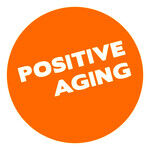So if a food tastes good, it's going to make you gain weight, right?
Not according to recent research.
Despite the common perception that good-tasting food is unhealthy and causes obesity, new research from the Monell Center suggests that desirable taste in and of itself doesn't lead to weight gain.
Study authors found that good taste determines what we choose to eat, but not how much we eat over the long term.
In the past, researchers who study obesity have found that laboratory rodents fed a variety of tasty human foods, such as chocolate chip cookies, potato chips and sweetened condensed milk, avidly overeat the "good" foods and become obese. These studies have provided support for the common belief that tasty food promotes overeating and ensuing weight gain. However, because no study had separated the positive sensory qualities of the appetizing foods from their high sugar and fat content, it was impossible to know if the taste was actually driving the overeating.
Study senior author Michael Tordoff, a physiological psychologist at Monell, and his colleagues designed a series of experiments to assess the role of taste in driving overeating and weight gain. The findings were published in the journal Physiology & Behavior.
The researchers first established that laboratory mice strongly like food with added nonnutritive sweet or oily tastes. To do this they gave mice two cups of food. One group of mice had a choice between a cup of plain rodent chow and a cup of chow mixed with the noncaloric sweetener sucralose. The other group received a choice between a cup of plain rodent chow and a cup of chow mixed with mineral oil, which also has no calories.
The mice ignored the plain chow and ate almost all of their food from the cups containing the sweetened or oily chow, establishing that these non-caloric tastes were indeed very appealing.
Next, new groups of mice received one of the three diets for six weeks: one group was fed plain chow, one group was fed chow with added sucralose, and one group was fed chow with added mineral oil. At the end of this period, the groups fed the sweet or oily chow were no heavier or fatter than were the animals fed the plain chow.
Additional tests revealed that even after six weeks, the animals still highly preferred the taste-enhanced diets, demonstrating the persistent strong appeal of both sweet and oily tastes.
In another experiment, the researchers fed mice a high-fat diet that is known to make mice obese. Mice fed this high-fat diet sweetened with sucralose got no fatter than did those fed the plain version.
"Even though we gave mice delicious diets over a prolonged period, they did not gain excess weight. People say that 'if a food is good-tasting it must be bad for you,' but our findings suggest this is not the case. It should be possible to create foods that are both healthy and good-tasting," said Tordoff.
RECIPE
'Tis the time for family and holiday celebrations. Try this lower fat/lower calorie cheese ball from Eating Well magazine. It offers a great contrast with nuts, cheese and pears. Serve it with cut veggies and crisp party crackers. You can also toast the nuts and add additional scallions for even more flavor.
Pear-Pecan Cheese Ball
8 ounces reduced-fat cream cheese, softened
1 1/4 cups shredded extra-sharp Cheddar cheese
1 medium firm ripe pear, finely chopped
1 scallion, white and green separated, finely chopped
1/2 teaspoon salt
1/4 teaspoon ground pepper
1/3 cup finely chopped toasted pecans
Stir cream cheese, Cheddar, pear, scallion white, salt and pepper together in a medium bowl. Coat a large piece of plastic wrap with cooking spray. Scoop the cheese mixture onto it. Using the plastic wrap to help you, form the cheese mixture into a ball, then completely wrap in plastic. Refrigerate for at least 1 hour and up to 2 days. Just before serving, combine pecans and the reserved scallion greens in a shallow dish. Roll the cheese ball in the mixture, pressing to adhere. Serving size: 2 tablespoons.]
Per serving: 63 calories, 2 g protein, 2 g carbohydrate, 5 g fat, 13 mg cholesterol, 0 g fiber; 118 mg sodium.
Charlyn Fargo is a registered dietitian at Hy-Vee in Springfield, Ill and a spokesperson for the Illinois Academy of Nutrition and Dietetics. For comments or questions, contact her at charfarg@aol.com or follow her on Twitter @Nutrition Rd. To find out more about Charlyn Fargo and read features by other Creators Syndicate writers and cartoonists, visit the Creators Syndicate website at www.creators.com.






View Comments